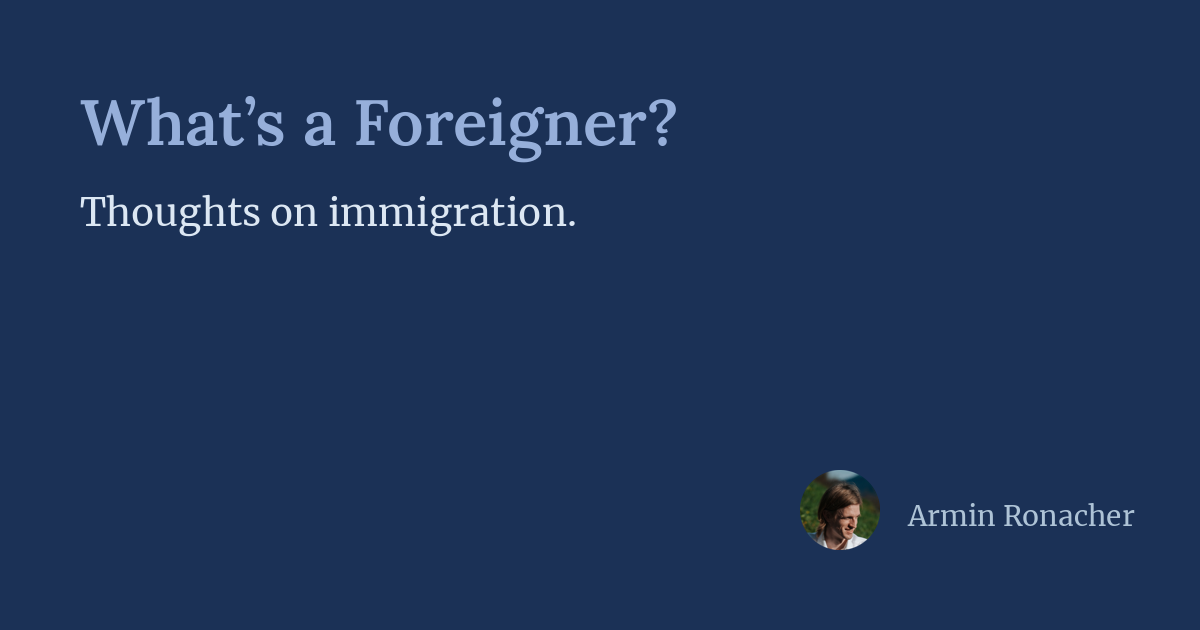
"In Vienna, where I live, immigration is visible: roughly half of primary school children don't speak German at home. Austria makes citizenship hard to obtain. Many people born here aren't citizens; at the same time, EU citizens living here have broad rights and labor-market access similar to native Austrians. Over my lifetime, the fear of foreigners has shifted: once aimed at nearby Eastern Europeans, it now falls more on people from outside the EU, often framed through religion or culture."
"I believe this is quite different from what is happening in the United States. The present-day US debate is more tightly tied to citizenship and allegiance, which is partly why current fights there include attempts to narrow who gets citizenship at birth. The worry is less about which foreigners come and more about the terms of becoming American and whether newcomers will embrace what some define as American values."
Resistance to immigration is rising globally, even in low-immigration countries. Definitions of "foreigner" vary across legal and social contexts. In Vienna immigration is visible: about half of primary school children do not speak German at home; citizenship is difficult, many born locally lack it, while EU citizens have broad rights and labor access. Fear shifted from nearby Eastern Europeans to people from outside the EU, often framed by religion or culture, so "foreigner" increasingly means non‑EU. In the US the debate centers on citizenship and allegiance, with efforts to narrow birthright citizenship and worries about newcomers embracing American values. EU citizenship reduces perceived foreignness through free movement.
Read at Armin Ronacher's Thoughts and Writings
Unable to calculate read time
Collection
[
|
...
]